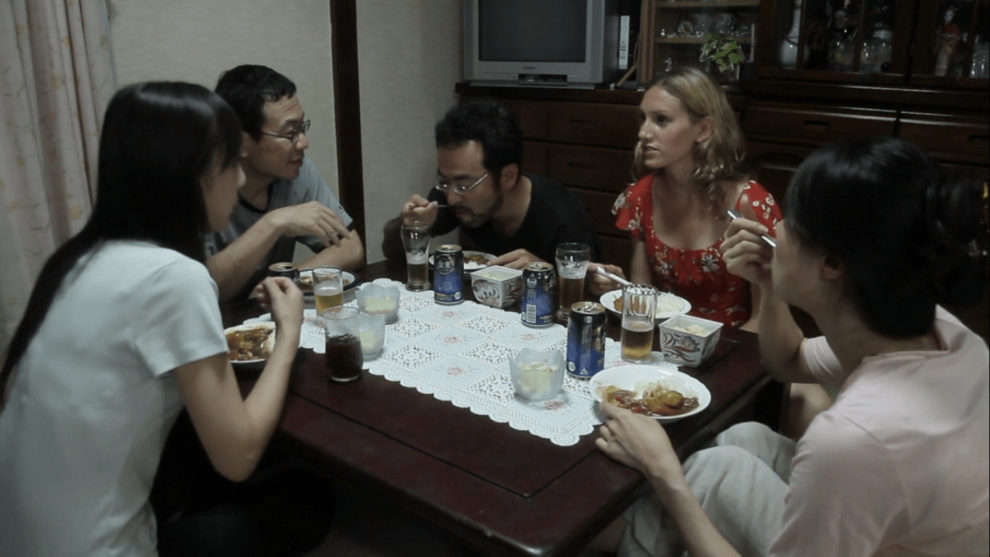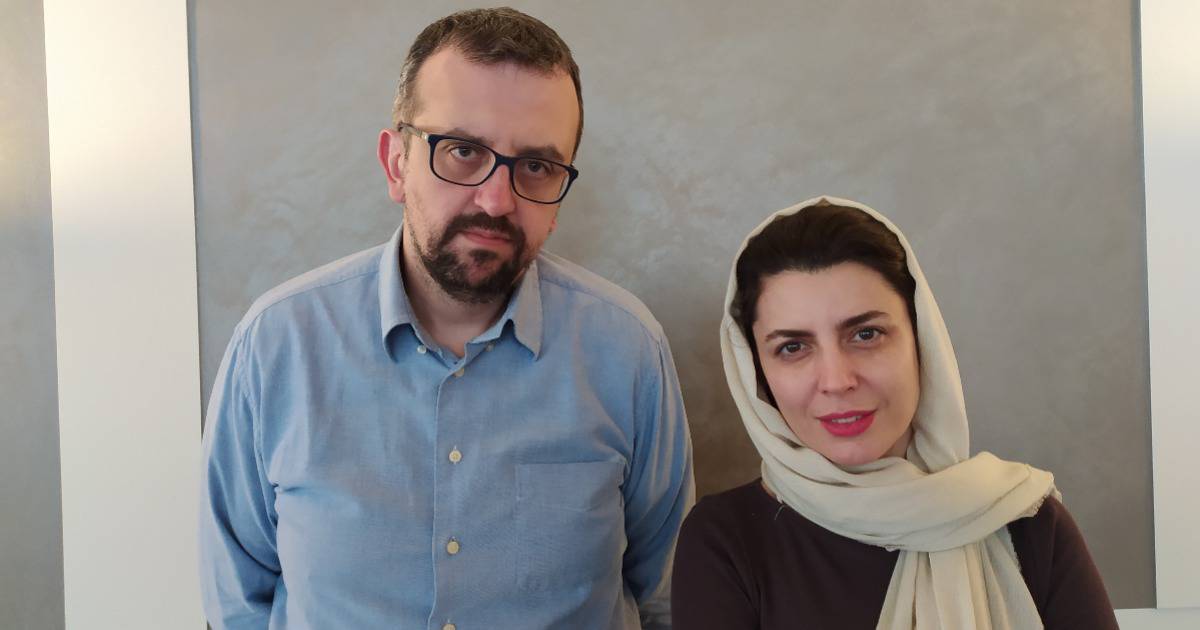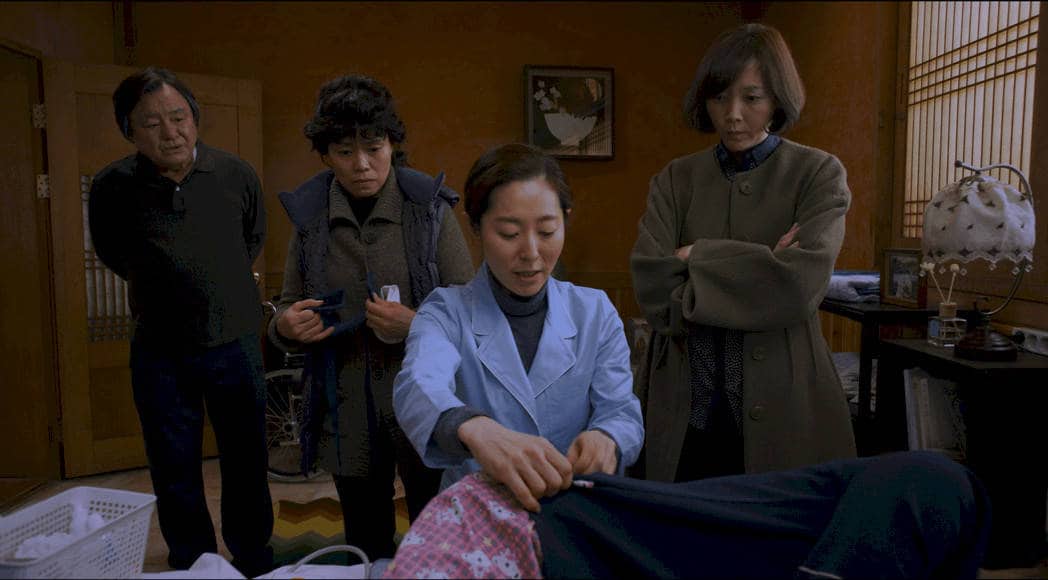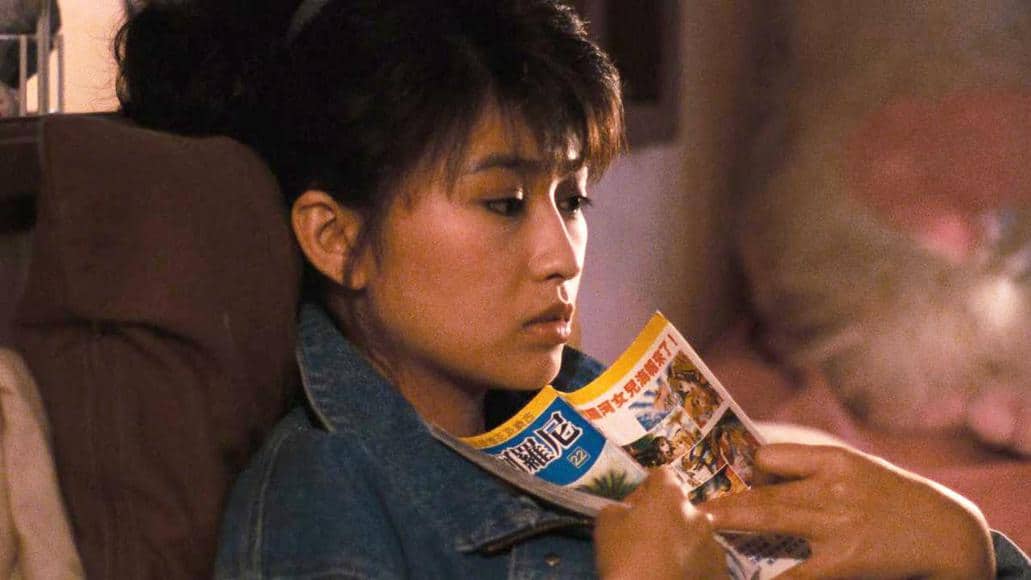2010 was a rather important year for Koji Fukada, since “Hospitalité” netted the Best Film in the Japanese Eyes section of Tokyo International Film Festival and was extensively screened abroad, signaling the beginning of wider recognition for the filmmaker. The French title of the movie, according to Kiki Sugino, actress and producer of the film, was inspired by French philosopher Jacques Deridda's idea of the term “hospitalité”.
“Hospitalité” is screening at Vesoul International Film Festival of Asian Cinema
The story takes place in a neighborhood in Tokyo, where Mikio Kobayashi lives with his younger wife Natsuki, his daughter from a previous marriage who his current spouse teaches English, and his sister, who has recently divorced and has returned back to the house. On the ground floor of the two storey building, Mikio also operates the small Kobayashi Printing Co, which has somewhat declined since the days when his father was the boss. The life of the family is as bourgeois-normal as possible, with the only thing that bothers its members being some persistent neighbors, who insist on them being part of the neighborhood watch. Things change dramatically when a former acquaintance of Mikio, Kagawa, appears in their lives, initially regarding a parrot the family has lost. Soon, however, he convinces, (or forces may be the most proper word here) his old friend to give him a job, and even lodge in the building, while a bit later, his Western wife, supposedly a Brazilian dance teacher, also appears and starts living with him.
Moving somewhere between the satire and the black, ironic, allegorical comedy, Koji Fukada presents a number of comments regarding Japanese people, most of which seem to mock their ways in subtle, but pointed ways, with each character essentially being a mirror of these attitudes. For example, both Kagawa and his wife, Annabelle, function as an allegory for the Japanese xenophobia, as their actions highlight everything the local are afraid any kind of “foreigner” will do. In that regard, Kagawa takes over both the business and the overall life of the Kobayashis, not to mention forcibly moving to their house, thus “threatening” Mikio (and in his face, all Japanese men) as a provider/boss of the family. Even more so, Annabelle “bewitches” the little daughter by teaching her dancing, while her open sexuality seems to woo men towards her, thus “threatening” Natsuki (and in her face, all Japanese women) both as a mother and a woman/wife.
Conjunctively, through these elements, Fukada also mocks the Japanese ways, since no one seems to really protest or fight against Kagawa taking over, essentially preferring to remain timid and polite, avoiding any kind of confrontation. The concept of young, beautiful girls taking advantage of older men also rises after a fashion, as much as the fact that the bonds between family members can result in actions and decisions that are not exactly suited to adults. Lastly, the fact that on the surface, the family members all seem normal but every single one of them harbors some kind of dark secret, also adds to this approach.
On a meta level, Fukada also mocks the “home-invasion” subcategory in cinema, by presenting it in a way that is comedic instead of horrific, as is usually the case.
As revealed by all the aforementioned aspects, character creation is one of the best assets of the movie, with Fukada's effort in that regard being top notch. At the same time, the movie benefits the most by the acting, with the cast being, for the most part, members of renowned playwright Oriza Hirata's theater company, “Seinendan”, of which the director was also a member in the past. The one who steals the show is definitely Kanji Furutachi as Kagawa, whose mysterious, nosy, meddling, and occasionally creepy ways dictate the overall aesthetics of the movie. Kenji Yamauchi as Mikio is also great as the epitome of Japanese bourgeois man, while Kiki Sugino presents her frustration and the fact that she is hiding something in a measured, subtle, but also quite eloquent way. Bryerly Long as the apple of discord Annabelle is also quite convincing, despite her rather laconic performance, with the same applying to Kiki Sugino in an almost opposite acting style as Natsuki.
The theatricality that characterizes the movie on a number of sequences, as in the final ones for example, is also evident in the production values, with DP Kenichi Negishi frequently using steady cameras to portray the scenes of a story that unfolds, for the most part, inside a house. However the way the building is implemented within the story is excellent, as it is essentially an additional character, while Fukada's own editing, along with a few exterior scenes, give a sense of speed and movement that works quite well in entertainment terms, despite the relatively slow pace.
“Hospitalité ” is an excellent film, one of those titles that truly transcend the Japanese family drama, and a testament to Fukada's abilities both as a director and a script writer.

















